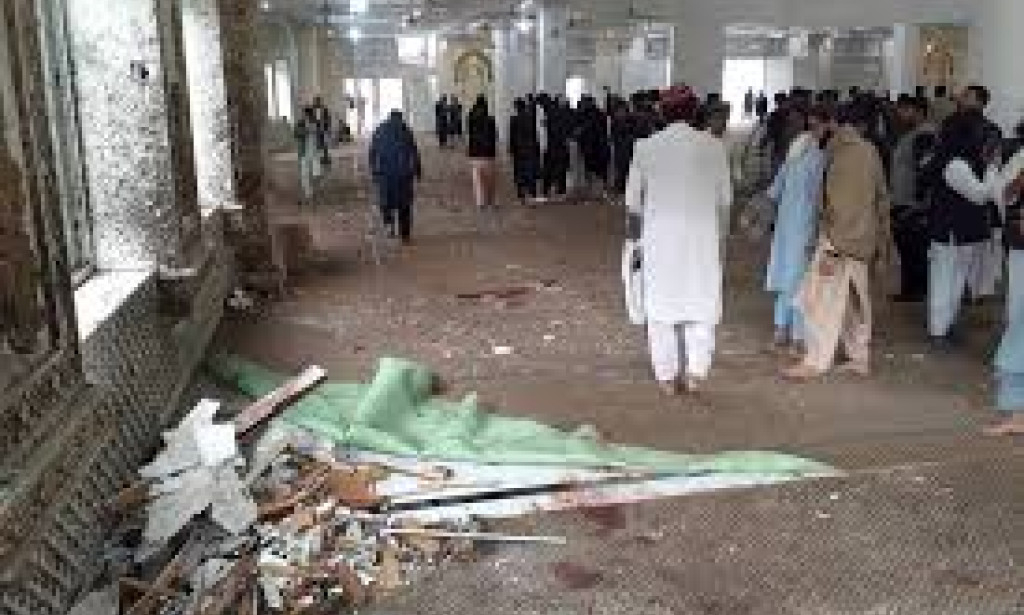Tragic Attack on Darul Uloom Haqqania: A Blow to Pakistan's Religious Community
On February 28, 2025, a devastating suicide bombing targeted the renowned Darul Uloom Haqqania seminary in Akora Khattak, Khyber Pakhtunkhwa, Pakistan. This heinous act resulted in the deaths of at least six individuals, including the prominent cleric and head of the seminary, Maulana Hamidul Haq Haqqani, and left over 20 others injured.
 The Incident
The Incident
The attack occurred during Friday prayers at the mosque within the seminary's compound. The assailant, equipped with an explosive belt, infiltrated the mosque despite existing security measures. The explosion claimed the lives of Maulana Hamidul Haq Haqqani and several worshippers, including three police officers assigned to protect the seminary. The force of the blast caused significant structural damage to the mosque, amplifying the tragedy.
Darul Uloom Haqqania: A Historical Overview
Established in 1947 by Maulana Abdul Haq, Darul Uloom Haqqania has been a pivotal institution in Islamic education within Pakistan. Often referred to as the "University of Jihad," the seminary has educated numerous figures who later assumed leadership roles within the Taliban. Notably, individuals such as Akhtar Mansour, a former Taliban supreme leader, and members of the Haqqani network trace their educational roots to this institution. The seminary's influence extends beyond Pakistan, impacting regional dynamics, especially in Afghanistan.

Maulana Hamidul Haq Haqqani: A Legacy Cut Short
Born on May 26, 1968, Maulana Hamidul Haq Haqqani was an esteemed Islamic scholar and politician. He served as a member of Pakistan's National Assembly from 2002 to 2007 and led the Jamiat Ulema-e-Islam (S) party following the assassination of his father,

Maulana Sami-ul-Haq, in 2018. Under his leadership, Darul Uloom Haqqania continued its mission of Islamic education, attracting students from across the region.
Reactions and Condemnations
The attack drew widespread condemnation from various quarters. Pakistani leaders, including President Asif Ali Zardari and Prime Minister Shehbaz Sharif, denounced the bombing and expressed their condolences to the victims' families. The Afghan Taliban also condemned the attack, reflecting the seminary's deep-rooted connections with Afghan religious and political spheres.
Locally, thousands of mourners gathered at Darul Uloom Haqqania to attend the funeral of Maulana Hamidul Haq Haqqani. The large turnout underscored the profound respect and influence he commanded within the community. The funeral prayers proceeded under tight security, with both police and seminary students ensuring the safety of attendees.

Investigation and Security Measures
In the aftermath of the bombing, Pakistani authorities launched a thorough investigation to identify and apprehend those responsible. A photograph of the alleged suicide bomber was released, and a reward was announced for information leading to the identification of the perpetrator. The attack, occurring just before the holy month of Ramadan, raised concerns about potential escalations in violence during this period.
The bombing at Darul Uloom Haqqania was one of four attacks in Pakistan on the same day, two of which targeted mosques. This series of coordinated attacks highlighted the persistent security challenges facing the nation, particularly concerning religious institutions.

Implications for Pakistan's Religious Landscape
The assault on Darul Uloom Haqqania signifies a troubling escalation in attacks targeting religious figures and institutions in Pakistan. Given the seminary's historical ties to the Taliban and its influence in the region, the attack could have broader implications for the country's religious and political dynamics. It underscores the urgent need for enhanced security measures to protect religious leaders and institutions, especially those with significant historical and political relevance.
The tragic attack on Darul Uloom Haqqania not only resulted in the loss of prominent religious figures but also struck at the heart of Pakistan's religious educational institutions. As the nation mourns this loss, it must also grapple with the underlying security issues that allow such atrocities to occur. Strengthening protective measures for religious institutions and fostering inter-community solidarity are crucial steps toward preventing future tragedies and preserving the sanctity of places of worship and learning.




You must be logged in to post a comment.